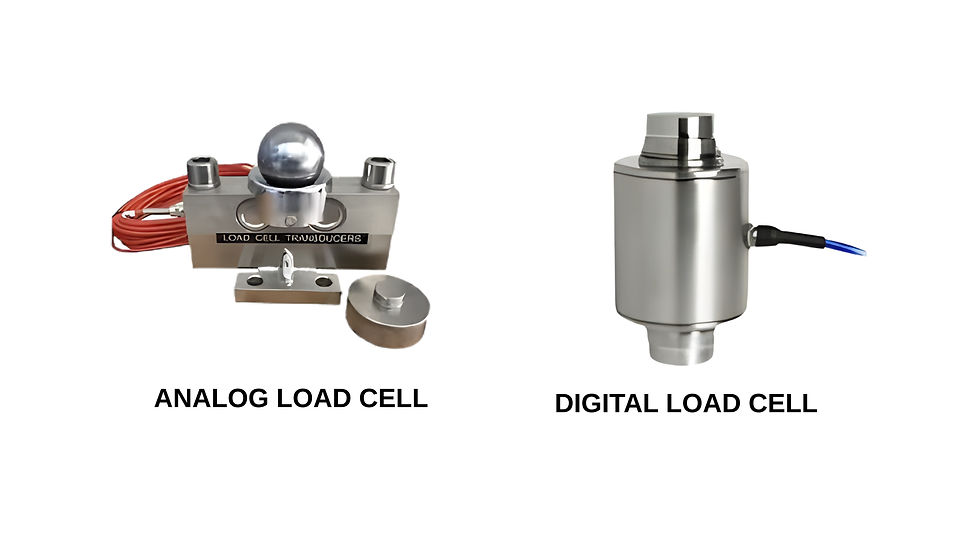Load Cell Failure: Small Issue, Big Loss
- Kanta King

- Sep 11, 2025
- 2 min read
In industries where accuracy in weighing and measurement is the backbone of operations—such as logistics, mining, agriculture, and manufacturing—a load cell may seem like a small component. Yet, its failure can bring massive disruptions and losses. Often overlooked, a faulty load cell is a perfect example of how a small issue can snowball into a big financial and reputational setback for a business.
What is a Load Cell?

A load cell is a transducer that converts force or weight into an electrical signal. It is the heart of weighing systems, installed in weighbridges, industrial scales, tanks, silos, and even smaller measurement devices. When a load cell works correctly, it ensures accurate readings, fair trade, and smooth operations. When it fails, the consequences are costly.
Causes of Load Cell Failure
Overloading
Exceeding the rated capacity of the load cell causes permanent deformation.
Common in industries where trucks or containers are overloaded.
Environmental Factors
Moisture, dust, or corrosive chemicals seep into the load cell and damage sensitive parts.
Extreme temperatures cause material expansion and contraction, reducing accuracy.
Electrical Issues
Power surges, lightning strikes, or faulty grounding can damage strain gauges and circuits.
Mechanical Stress
Improper installation, misalignment, or physical shocks (such as a heavy object dropping suddenly) can crack the sensor body.
Wear and Tear
Continuous use without calibration or maintenance leads to gradual accuracy loss.
Signs of a Failing Load Cell
Inconsistent readings on the same load.
Unstable or drifting weight display.
Zero balance errors (scale doesn’t reset to zero).
Abnormally slow response time.
Sudden system shutdowns or alarms.
Ignoring these signs is where businesses start incurring losses.
The Hidden Costs of Load Cell Failure
Financial Loss- Imagine a weighbridge in a transport company giving inaccurate readings. Even a 1% error in weighing hundreds of trucks per month can translate into lakhs of rupees lost through underbilling or overpaying.
Operational Disruptions- A failed load cell can halt an entire production line, delay shipments, or create bottlenecks. Downtime is costly in industries where time equals money.
Legal Penalties- In India and many other countries, Legal Metrology laws demand accurate and verified weighing instruments. Using faulty load cells risks fines, penalties, and even business license suspension.
Customer Trust & Reputation- Inaccurate weighing can lead to disputes, customer dissatisfaction, and loss of long-term contracts. Once trust is broken, regaining it is a challenge.
Safety Hazards- Faulty load cells in cranes, lifts, or heavy machinery pose risks of overloading, accidents, and injuries.
Prevention is Better than Cure
Regular Calibration – Periodic verification ensures the load cell remains accurate.
Routine Maintenance – Inspect cables, connectors, and mounting points.
Environmental Protection – Use load cells with proper sealing and IP ratings to withstand harsh conditions.
Training – Ensure operators are trained not to overload or mishandle weighing systems.
Prompt Replacement – Replace damaged or old load cells before they cause bigger issues.
Conclusion
A load cell may be small, but its importance is massive. Ignoring its health can cause financial drains, legal troubles, and reputational damage. Businesses that treat load cell maintenance as a priority enjoy accuracy, compliance, and efficiency.
Don’t let a small issue turn into a big loss. Invest in regular load cell care to protect your business.
KANTA KING
Website: https://www.kantaking.com/
Contact Us: +91.9560915555
Email: info@kantaking.com




Comments